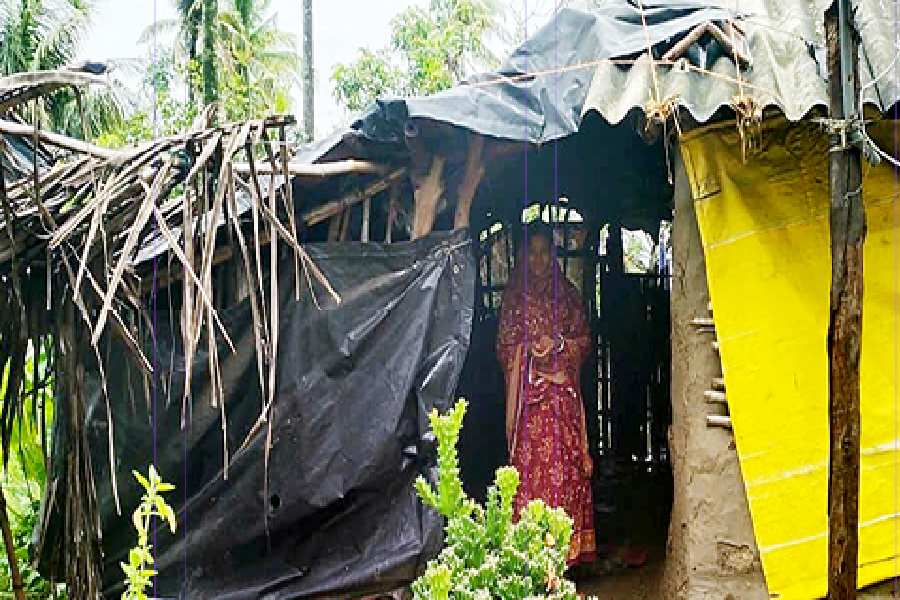A group of women was waiting on the bank of the Bidyadhari river, for ration and roof.
The thatched roofs of their houses were all blown away and the little rice and ration that they had either got scattered in the mud or got swept away by the wind.
They are tiger widows, at Bali in the Sunderbans, who lost their husbands to tiger attacks.
Organisations that work in the mangrove delta have started relief work in the villages a couple of days after Cyclone Remal ravaged many.
Most people who lived in kutcha houses need ration to cook food and tarpaulin sheets to rebuild their homes. The feeble, unstable structures have come down.
“People in the city perhaps do not realise the kind of damage we have suffered here,” Sumitra Mridha, a tiger widow, told a volunteer who carried ration to them on Wednesday morning.
Mridha took the ration to a makeshift earthen stove outside her house. In many of the houses, the earthen stoves were damaged, too.
Subala Mondal, another tiger widow, took the ration to cook for her 30-year-old son who has a disability.
“When our boat reached their village, these women waiting on the bank
of the river looked at us with hope. Either the roofs of their houses were not there
or a portion of the wall collapsed,” said Ayush Sarda, founder, of the NGO Ek Packet Umeed.
“We have been able to raise ration for about 600 people so far. We intend to cover eight villages. We sent out a message in our circle and people came forward, donating ration and tarpaulin sheets which we brought to the Sunderbans,” he said.
The organisation plans to distribute relief materials for a couple of days.
Most of the houses that have been damaged were made of clay, bamboo and plastic sheets.
Mukti, an organisation that has been working in the Sunderbans for 20 years, conducted an assessment of the intensity and extent of damage caused by Remal.
“Mud or weak houses have been destroyed, trees uprooted and vegetable gardens ruined. Because the monsoon vegetable has been damaged, it impacts the livelihood of the people,” said Sankar Halder of Mukti.
The organisation has drawn up both short-term and long-term plans to help the villagers.
The short-term help consists of distribution of ration, baby food and hygiene kits, tarpaulin sheets and vegetable seed support.
“Sustainable housing and plantation are part of our long-term plan. We have been promoting sustainable, cyclone- and flood-tolerant housing in the Sundarbans for a few years and have built 100 such houses so far,” said Halder.










